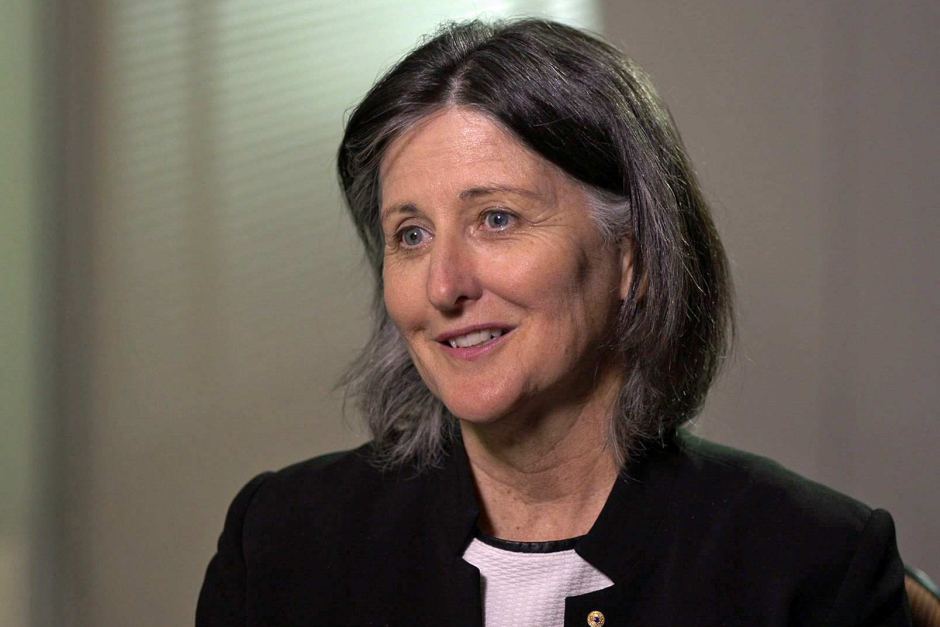STEVE AUSTIN: If you have been in hotel quarantine, received your bill and not paid, then apparently you can expect a call from a debt collector soon, I kid you not. There are reports that the Queensland Government is about to send in the State Penalties and Enforcement Registry to get their money, SPER as it’s known. Now, Karina’s(*) story is quite a troubling one. I’m going to play a brief replay of her interview after this next- my next guest. But Fiona Guthrie is the Chief Executive Officer of Financial Counselling Australia. They run the National Debt Helpline. Fiona Guthrie, how many calls are being made to the National Debt Helpline about hotel quarantine bills at the moment? Can you say?
FIONA GUTHRIE: Steve, we don’t have exact numbers, but what I can tell you is that we had enough calls on the National Debt Helpline, as well as people raising this with face to face financial counsellors, that we put together a specific page on the National Debt Helpline website. And some of our state associations have written to their state governments, raising concerns about the way hotel quarantine debts are being collected by state governments because it’s, of course, it’s the state government responsibility.
STEVE AUSTIN: What have they said? What are they raised with state governments to say, hey, look, do you realise that what you’re doing to your citizens?
FIONA GUTHRIE: Yes. The main problem, and this is really disappointing, and comes, I think, from governments just sort of not being accountable enough, is just not working with people to try and agree affordable repayment arrangements. You need to treat people sensitively, with compassion and with respect. People want to pay their debts. It is an appalling situation if somebody has to resort to a paid- well this actually was probably a medium amount credit contract loan, the way you described it, but a 48 per cent interest rate loan, that is a shocking outcome for that person. It’s a shocking outcome for the debt collection system, and it’s a shocking outcome for the government.
STEVE AUSTIN: The state government here doesn’t seem to care or think it’s relevant. Has any other state government responded to the approach by your members?
FIONA GUTHRIE: There’s a- there’s been a couple of meetings, I understand, in different states, but the problem is widespread. And it really goes to this broader issue around how state governments collect fines and debts owed to them, generally, because they just sometimes won’t take no for an answer and so they don’t always- it’s actually, in the short term, it doesn’t actually work for them. If they were to work with people and put in place affordable arrangements, you would actually get back more money. If you start having to outsource debt collection, those processes to debt collectors, it actually costs the taxpayers more money. So it doesn’t really make sense
STEVE AUSTIN: My guest Is Fiona Guthrie, she’s the Chief Executive Officer of Financial Counselling Australia. They run the National Debt Hotline. We’re talking about the reports that the Queensland State Government, and, as it turns out others, are pursuing people over unpaid hotel quarantine bills. Here in Queensland, the government’s about to send in the State Penalties and Enforcement Registry to get its quarantine bill money back. I’m going to play you the interview with Karina, who’s had to resort to a payday lender, putting her car up as security just to get money to come into her own state. What other sort of stories are you hearing from people who can’t afford to pay, Fiona Guthrie?
FIONA GUTHRIE: Yeah, very similar. People who’ve lost their jobs overseas, they’ve tried to come home in the early days of the pandemic, no one knows what’s going on. You can’t get a job when you come home. For example, a chef who was working overseas, hospitalities closed down so on unemployment benefits, or the various disaster payments. So again, struggling and just not getting a sympathetic and compassionate hearing from various state governments, when if they could just give people time, they would be able to come to an affordable repayment arrangement. And there will be some people, Steve, who will not ever be able to pay because of whatever has happened in their lives, and we have to see and need state governments to be compassionate in those circumstances.
STEVE AUSTIN: Are state governments being too hard-line in this scenario, Fiona Guthrie?
FIONA GUTHRIE: I think as a general comment, yes, they- and I’m speaking now broadly about the way they collect fines in their own system. And it comes to this- creditors, generally – you take the banking industry, for example – have really worked really hard on financial difficulty responses. They know if they treat people with respect, they work with them, it’s in their interest, and it’s in their customers’ interests. We don’t necessarily have that same understanding across Australia in our government agencies. And I would include the ATO and state government enforcement units, such as SPER.
STEVE AUSTIN: I think it should be pointed out that these people who are going into hotel quarantine, they’ve done nothing wrong. They’ve not breached any law. They’re not guilty of anything. They’re just people who want to come back to where they live. It’s bizarre.
FIONA GUTHRIE: And they want to pay their debts. But the fact that people are coming to financial councillors, we help people who are experiencing financial difficulty, you come to us because you want to try and do the right thing. So it just comes back to sort of common sense, fair, sensitive, compassionate, and try and help Australians come back to their own country.
STEVE AUSTIN: What should you do if you receive a bill like a hotel quarantine bill that you can’t pay up front, you can’t pay? You get the bill, you get the notice from the state government, and you go, my goodness, I don’t have the money.
FIONA GUTHRIE: You should try and talk to them in the first instance, because if you don’t engage, then of course they’re going to assume that you’re trying to avoid it. And of course, what happens is the opposite; people actually highly stressed by this. So if you can, ring and speak to them, or there are online forms. But if you’re absolutely overwhelmed, that’s when you come and speak to a free, independent, confidential financial counsellor on the National Debt Helpline. 1800-007-007. And we’ll help you work through your options and try and help you with strategies to work with the Government.
STEVE AUSTIN: So the National Debt Helpline is 1800-007-007.
FIONA GUTHRIE: Fantastic phone number to remember.
STEVE AUSTIN: Yes, it is. And your organisation, the Financial Counselling Australia, in each of the states has asked state governments- or called them to account over what they’re doing to people over the hotel quarantine bills.
FIONA GUTHRIE: Well, we’re a federal structure, so our state associations, it depends on the states. Some of them have written or had meetings with them to talk about this very issue because the common experience in the financial counselling sector has generally been that state governments are not always treating people with compassion and agreeing on affordable repayment arrangements. I did hear of an example, which was just bizarre, where they didn’t allow a haircut in someone’s budget as it wasn’t an essential expense. Now, that’s just crazy.
STEVE AUSTIN: Fiona Guthrie, I’ll leave it there. Thanks so much.
FIONA GUTHRIE: It’s a pleasure. Thank you.
STEVE AUSTIN: Fiona Guthrie is the Chief Executive of the Financial Counselling Australia. They run the National Debt Helpline. Their number is 1800-007-007.
– End –
Transcript provided by Slice Media
© 2021 Australian Broadcasting Corporation. All rights reserved.


